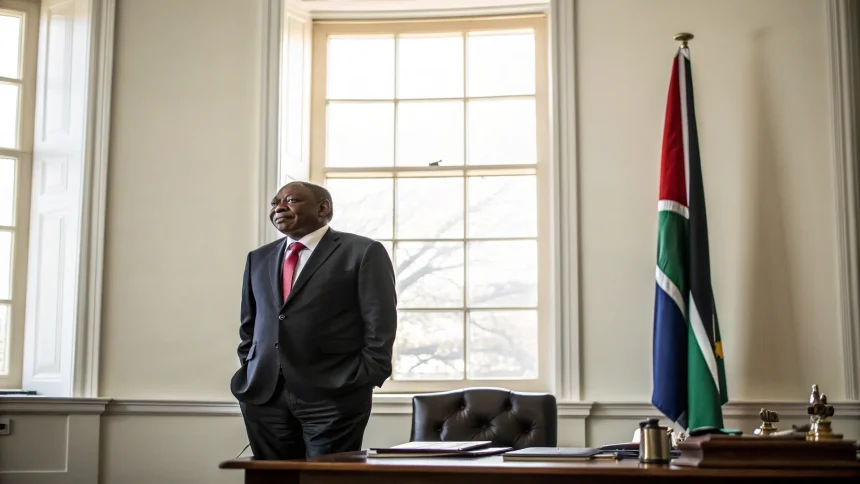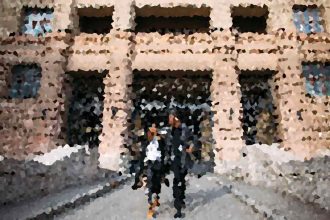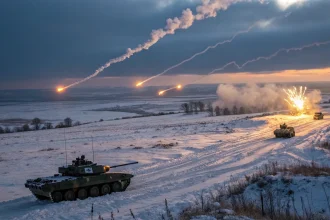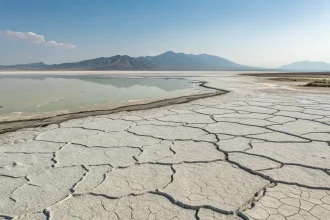South African President Cyril Ramaphosa has ordered an official inquiry to determine if previous African National Congress (ANC) governments deliberately prevented investigations and prosecutions of apartheid-era crimes. The decision, announced Wednesday, represents a significant development in South Africa’s ongoing efforts to address its troubled past.
The presidential inquiry will examine claims that post-apartheid ANC-led administrations may have “improperly influenced” or hindered investigations into crimes committed during white minority rule. This move comes after more than two decades of persistent demands from victims’ families and survivors seeking justice and accountability.
Addressing Long-Standing Allegations
According to a statement from the President’s office, the inquiry will focus on allegations of “improper influence in delaying or hindering” investigations related to apartheid crimes. These accusations have circulated for years, suggesting that despite the ANC’s role in ending apartheid, subsequent governments may have obstructed justice for political reasons.
The ANC, which led South Africa’s transition to democracy after decades of white minority rule, has faced growing criticism for its handling of apartheid-era cases. As the organization that spearheaded the anti-apartheid struggle, the ANC’s potential role in blocking investigations presents a complex historical contradiction.
Justice Delayed
For families of victims and survivors, this inquiry represents a potential breakthrough after more than 20 years of advocacy. Many have argued that the Truth and Reconciliation Commission (TRC), established in the 1990s to address apartheid crimes, left numerous cases unresolved when perpetrators did not apply for amnesty or fully disclose their actions.
Critics have pointed to several high-profile cases that remained uninvestigated or unprosecuted despite available evidence. These include:
- Deaths of anti-apartheid activists in detention
- Targeted assassinations of ANC members in exile
- Massacres and violent suppression of protests
The failure to pursue these cases has left many South Africans questioning the government’s commitment to justice and accountability.
Political Implications
Ramaphosa’s decision carries significant political weight, as it effectively puts previous ANC administrations under scrutiny. This includes governments led by Nelson Mandela, Thabo Mbeki, Kgalema Motlanthe, and Jacob Zuma.
The inquiry could reveal uncomfortable truths about political compromises made during South Africa’s transition to democracy. Some analysts suggest that investigations may have been blocked to maintain stability during the fragile post-apartheid period, while others point to potential agreements between political elites.
“This inquiry represents an acknowledgment that our transition to democracy, while celebrated globally, left many victims without closure or justice,” said a representative from a victims’ advocacy group who has been campaigning for investigations to be reopened.
Path Forward
The presidential inquiry will need to establish clear parameters for its investigation, including which specific cases it will examine and what powers it will have to access classified government documents.
For many South Africans, the inquiry represents a chance to address unfinished business from the country’s transition. While the Truth and Reconciliation Commission provided a framework for national healing, many perpetrators of serious human rights violations were never held accountable.
The timing of Ramaphosa’s announcement comes as South Africa continues to grapple with the legacies of apartheid, including economic inequality and ongoing racial tensions. By confronting this aspect of the country’s recent history, the government may be attempting to demonstrate its commitment to justice regardless of political affiliations.
As the inquiry begins its work, victims’ families express cautious optimism that it might finally deliver answers about why investigations into apartheid crimes were seemingly abandoned after democracy was achieved. For a nation still working to heal historical wounds, the process represents both a risk and an opportunity to strengthen democratic institutions through accountability.









